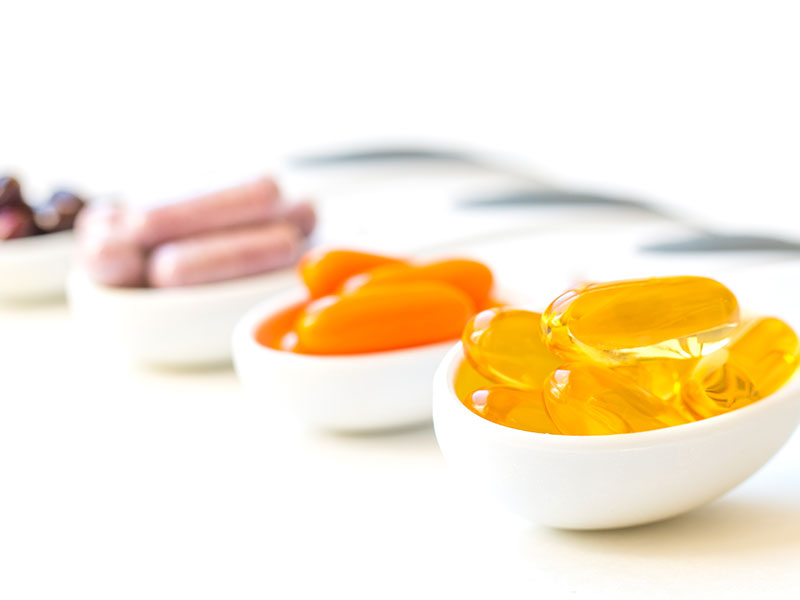
The New York Times has reported on fraudulent practices in the herbal remedy industry. Producers were misleading consumers with respect to the true contents of their products.
Cease and desist! In early February of 2015, the New York Times reported that the New York State Attorney General had sent cease and desist orders to four big retailers in the United States: Walmart, Walgreens, Target, and GNC. The reason? An investigation had shown that some of the more popular herbal remedy dietary supplements sold by these retailers did not contain the active ingredients that were listed on the labels of the containers.
Was Coenzyme Q10 involved?
No, Q10 was not among the dietary supplements that were investigated. The focus was on herbal remedies such as ginseng (for energy), ginkgo biloba (for cognitive performance), valerian root (for better sleep), and St. John’s Wort (for improved mood).
The investigators found that, in some products, the tablets and capsules did not contain medicinal herbs in the quantities indicated on the labels, but contained, instead, cheap fillers, e.g. powdered versions of less expensive substances such as rice, radishes, beans, peas or wild carrots. Some of the herbal remedies contained substances that some people might be allergic to, e.g. peanuts and soybeans. Some of the herbal remedies contained wheat even though the products are marked as being free of wheat and gluten.
Well, you get the picture. The message is clear. In an unregulated free market, the buyer must constantly be on guard. Theoretically, at least, we citizens and consumers would be better off with more, not less, government regulation of the food and beverage and herbal remedies and dietary supplements industries.
A form of food fraud
Then, with more careful regulation, the companies that want to commit food fraud on the consumer would be forced out of business. The companies that do not deliberately substitute inferior quality substances and do not misrepresent the ingredients in their products would be the ones that remain in business. We consumers would have more confidence that we are getting what we think we are paying for.
Shouldn’t we be careful when buying Coenzyme Q10?
Yes. There is remarkable diversity in the Coenzyme Q10 market in the United States. These Q10 products are no more regulated than the herbal remedy products are. Whenever we purchase a Q10 supplement, we have a difficult time knowing whether our purchase is a good quality product or not. And we cannot always be sure that a higher price alone is indicative of a better product.
What are we looking for when we buy Coenzyme Q10?
We need documentation, preferably in a reputable peer-reviewed bio-medical journal article, of the absorbability, the safety, and the efficacy of the Q10 substance in the preparation that we are purchasing.
First of all, we know that Q10 is a substance that must be prepared carefully if it is going to be absorbed in the small intestine. If the Q10 that we swallow is going to be absorbed and then become bio-available to the cells and tissues, it needs to be pre-treated with heat, it needs to be dissolved in oils, and it needs to be protected from exposure to the light in a dark soft-gel capsule. We should expect the producer to provide some studies showing that supplementation with the Q10 product does lead to a documented rise in Q10 levels in the blood.
Secondly, we want some assurance that taking Q10 supplements will not result in liver damage or kidney damage at some time later in life. The Linus Pauling Institute at Oregon State University summarizes available Q10 safety information as follows: … no reports of any significant adverse effects resulting from Q10 supplementation in patients taking doses of 1,200 milligrams per day for as long as 16 months and in patients taking 600 milligrams per day for as long as 30 months. However, we still need to be sure that the producer of the product we are buying has not introduced any adulterated substances into the capsules.
Thirdly, as educated consumers, we would like to see some evidence of a beneficial effect from taking the Q10 preparation. The wonderful thing about the Q-symbio study and the KiSel-10 study is that researchers gave a well-absorbed Q10 preparation (in the form of ubiquinone) or a placebo preparation to randomly created samples of people, and then, when the study was over and the seal on the code was broken, the researchers could see that it was the people in the Q10 treatment group who had significantly less incidence of cardiovascular mortality and all-cause mortality and hospital stays and who had a better quality of life.
In the case of the Gulf War Illness study, researchers could see statistically significant improvement in various symptoms and a better quality of life in the patients who had gotten the active Q10 substance.
Marketing claims and documented evidence for Q10’s efficacy
Marketing claims are one thing. Documented results from properly designed clinical trials are another thing entirely. Put another way, it is one thing to make claims for a Q10 product based on a theory, and it is quite another thing to make claims for a Q10 product based on the empirical evidence of a randomized, double-blind, placebo-controlled study.
Are the Q10 products for which no published studies are available just as good as the Q10 products for which we have documented evidence of a beneficial effect? The only answer we can give is MAYBE. And MAYBE NOT. Who knows? Who can know for sure?
What are we looking for? We want to see a fairly large number of participants in carefully designed studies that go forward for a few years. That is what we get in the Q-symbio study and in the KiSel-10 study. Each study enrolled over 400 participants. Each study had randomization of participants to a Q10 treatment group or a placebo group. The Q-symbio study was a two-year prospective study; the KiSel-10 study was a 5-year prospective study.
So many questions about Q10
Is it possible to make a water soluble Q10 product? Is a ubiquinol Q10 product as effective as a ubiquinone Q10 product? Again, the answer has to be: maybe, maybe not.
We just do not know, and the reason we do not know is that no one has done studies equivalent to the Q-symbio study and the KiSel-10 study to document a statistically significant effect for water-soluble Q10 products and ubiquinol Q10 products in humans.
Yes, there do seem to be some absorption studies. But what good is absorption unless there is a beneficial health effect?
Can we extrapolate from one Q10 product to another?
Is it possible to extend the results and conclusions from the Q-symbio study (1) and the Kisel-10 study (2) and the Gulf War Illness study (3), all three studies carried out with a specific formulation of ubiquinone Q10, — is it possible to extend the results and conclusions from these studies to water soluble Q10 products or ubiquinol Q10 products?
The answer? We don’t know. Perhaps there is some carry-over? In the absence of rigorous clinical trials with the other forms of Q10, we just don’t know.
Sources:
- Mortensen SA, Rosenfeldt F, Kumar A, et al. The Effect of Coenzyme Q10 on Morbidity and Mortality in Chronic Heart Failure: Results From Q-SYMBIO: A Randomized Double-Blind Trial. JCHF. 2014;():. doi:10.1016/j.jchf.2014.06.008.
- Alehagen, U., Johansson, P., Björnstedt, M., Rosén, A., & Dahlström, U. (2013). Cardiovascular mortality and N-terminal-proBNP reduced after combined selenium and coenzyme Q10 supplementation: a 5-year prospective randomized double-blind placebo-controlled trial among elderly Swedish citizens. International Journal Of Cardiology, 167(5), 1860-1866. doi:10.1016/j.ijcard.2012.04.156
- Golomb, B. CoQ10 and gulf war illness. Neural Computation 2014 Nov; Vol. 26 (11), pp. 2594-651









Leave A Comment